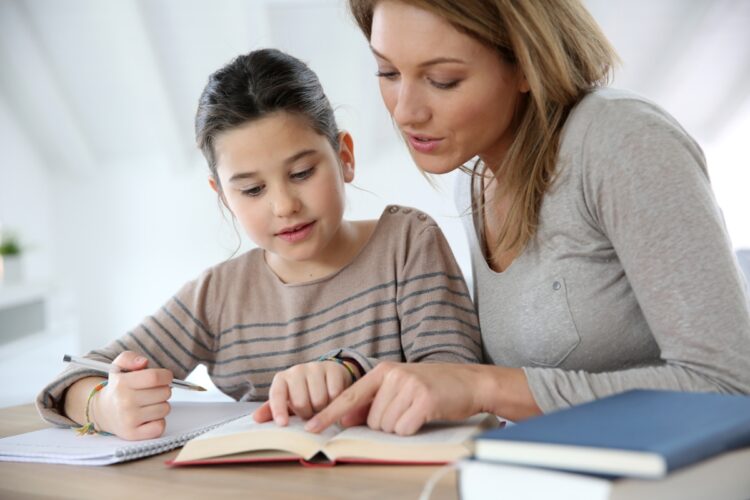By Gabriel Princewill-
U.S researchers have released guidelines for ambitious parents who want to develop their children well academically.
The researchers believe that quality parents train children by adopting a holistic approach to developing their intellectual development, including reading to them and developing their vocabulary.
The expert academics are part of consortium of bright researchers who propose effective methods of nurturing children emotionally and mentally, developing them academically through a series of good practices.
They research the various aspects of education and academic development and make recommendations for parents, schools, and tutors, mainly in Canada and The U.S.
However, all ambitious parents and tutors can benefit from it.
It is still being advanced and perfected. The conclusions exposes the relative class of parents who can’t meet the requirements, but doesn’t explicitly say so.
The education experts shared their blue print for successful parenting in terms of developing their children academically, with this publication.
Professor Hetta Roesingh from the Werkind School of Education, University Of Calgary, Canada, told The Eye Of Media.Com:The guidelines are aimed at high brow U.S parents who want to give their children a head start to intellectual progress and critical thinking, a representative which spoke on the condition of anonymity said.
”But parents anywhere in the world will see the benefits in their children if they can step up to requirements of thorough developments of their children, the anonymous source said.
They are useful tips meant for parents who have the appetite to invest their time in their children.
‘The guidelines also assume the parents are of a reasonable standard of education themselves, or prepared to develop themselves to a reasonable level for the sake of their children’s development’, Roeseng said after being questioned about whether just any parent can apply these principles in there.
This deduction was left out of their guidelines. in order not to appear be excluding a particular group of people. The answer for parents not educated to the level of their children’s academic material is to develop quickly to that level.
British parents without at least a G.C.S.E education are less likely to invest any time in developing their children academically, although exceptions exist.
However, there are many graduate parents who do not make the time to stimulate their children their reading and training. and some parents without G,C.S.E’s, who do.
Science Books And Covid-19 Pandemic
The researchers suggest reading children stories about bears from fairy tales, science books, and the news, including the Covid-19 pandemic.
The researchers also recommend going through complex words with the children, and making sure they understand what they mean. Reading aloud to children and highlighting illustrations, are also among their guidelines
Disrupted Learning
The highly impressive recommendations are designed to help children overcome the downsides of disrupted learning for children caused by the Covid-19 pandemic.
The researchers who studied children in Alberta report, have highlighted the best ways to stimulate the minds of children in these times of highly disruptive learning caused by Covid-19
The researchers noted that children in grades 2 and 3,(between the ages of 6 and 8) are six to eight months behind where they would usually be in reading. International researchers have projected the possibility of serious long-term consequences if learning losses are not addressed.
”Because reading underlies all academic work and long-term educational success, building reading skills in children particularly between grades 1 and 4 (ages 6-9) should concern parents”, they said.
Roesing pointed out the collective findings of the researchers that not many parents appreciate the value of allowing children to have opportunities to choose favourite stories for parents to read aloud, it’s also helpful for parents to take the lead with sharing more complex reading materials.
Read Alouds
The researchers who published their guidelines on the Conversation.Com , emphasised the importance of read alouds , in order to create a shared reading activity where adults help children build their vocabularies through discussion, hands-on activities and imaginative ways to extend new word knowledge.
They recommend helping children understand the meanings of words and how to use them correctly, as critical to children’s ”emerging abilities to tackle the more complex forms of analysis and writing expected from this age onwards.
”The brilliant idea about having quality conversations with children about complex ideas is how parents can build children’s words and confidence to grow their knowledge.
Children’s knowledge of words associated with the language of school improves their reading levels and benefits them far beyond their schooling years ”, they said.
The insightful guidelines encourages parents to select materials and engage in positive interactions that support children in making and understanding the connection between spoken language and letters on the page. Here are some tips for creating successful read alouds with kids.
Online Sources
The experts encourage parents to choose books with vocabulary that is ”a little higher than your child’s level, or news stories from newspapers, magazines or printed online news sources.
Education scholar Maryanne Wolfe explains how reading on paper allows especially the young reader to focus on and interact with the print and pictures.
News sources are rich in information and vocabulary with endless reports, articles and stories of interest to children of all ages: you can choose stories from wildlife, sports, unusual happenings, health and wellness .
Even stories about the ongoing COVID-19 pandemic. Here, you can be mindful of your child’s particular concerns and level of emotional maturity.
Shared Gaze
The researchers advice parents and children to read together and have a shared gaze on the page, with parents following what children are interested in and looking at. Children will perceive a sense of adult presence and shared experience, and enjoy pointing out letters, pictures or illustrations.




